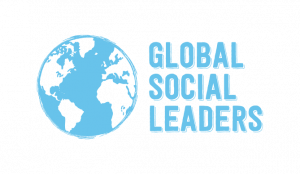We are delighted to share a blog written by student Sara Hoyer from Windhoek International School, who is part of a team delivering a Global Goals project for the 2019-20 Global Goals Competition.
Their project is among over 957 social action projects currently running as part of the GSL movement and we are excited to be supporting them to design and lead positive social change in their community.
We have learned a lot at the beginning our solar energy project and are now hoping to have just as much fun working with Fidel Castro Primary School during the implementation phase.
Project Overview
Namibia is a country with over 300 days of sunshine per year that still imports energy instead of using their own solar power. At the same time, many students in the poorer areas of the country don’t have electricity and can‘t study in the evenings. We want to help the students get a better education by providing them with light that uses sustainable energy, such as solar lanterns. In addition to that, we want to make climate action a bigger topic in Namibia. We want the students at the school to understand that the use of solar lamps is more sustainable than electricity that comes from coal. We are planning to organize a workshop where we will educate the children about solar energy and other ways in which they can help to fight against climate change. Finally, we want to design a painting on the school‘s wall for the children to remember us and be able to learn about climate action even after our project is over.
Our Journey
We have learned a lot in the beginning of our project, especially about planning and organizing, but also how to turn these plans into action. From the start, we had many ideas and ambitions on how to provide schools with solar electricity and install solar panels. Then, when it came to actually finding a school that needs our help and wants to work with us, we found out how difficult it is to find them. Most schools in Katutura that don’t have electricity also don’t have a website, and you cannot find their contact number or address on the internet. We learned that coming up with a project idea is far easier than doing it. We also became much better at working as a team and sharing new ideas, as well as contacting people we don’t know and presenting our project. Another challenge will be measuring the impact of our project and evaluating what effect it had on the community. We plan to communicate with the people we work with as much as possible, interview them, ask questions and make visits to overcome this problem and gather as much information as possible.
The Next Chapter
As a next step, we want to provide a group of students from Fidel Castro Primary School in Katutura with solar lamps that they can take home for learning and doing their homework. We hope this will allow them to become better at school and get good grades. Afterwards we want to begin the workshop that we are planning to do with students to educate them about climate action.
I would definitely recommend to get involved in a project about solar energy, since it seems to be the energy of the future, together with other sustainable sources of energy. In a country like Namibia, sun seems like the obvious choice, but wind electricity may be more effective in other places. Climate change must be stopped, and we cannot do that if we don’t encourage people to live a more sustainable life. In my opinion, climate action is the most urgent of all the development goals, and if you can combine it with another goal that’s even better!
The 2019-20 GSL Global Goals Competition is now open and runs until June 2020. If you belong to one of the 700+ teams of students currently delivering a social action project as part of the competition we would love to hear from you and feature your blog and project photos on our website to inspire others.











